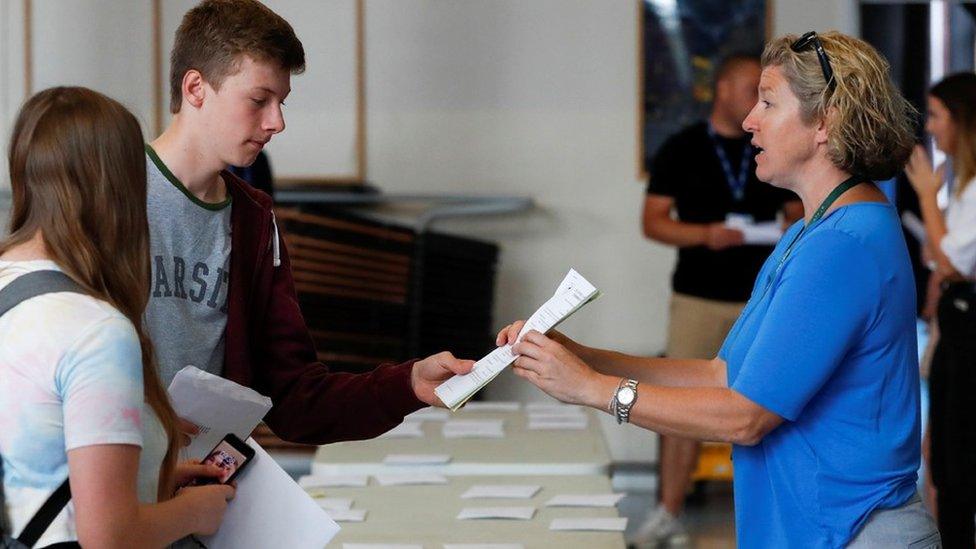Coronavirus: A-levels student's grief and Ramadan in lockdown
- Published
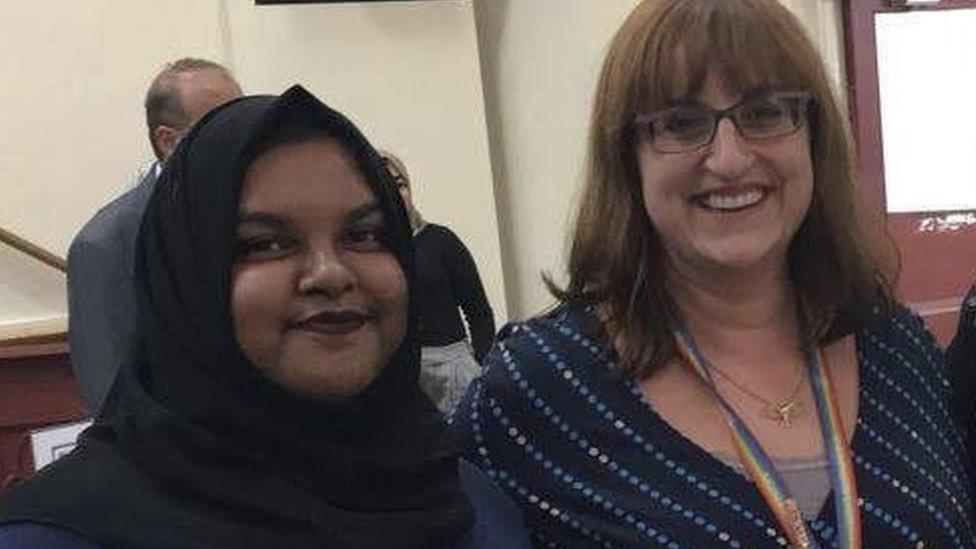
Athika, pictured with one of her teachers, says lockdown gave her the opportunity to grieve for her grandfather
"Losing my grandad before Covid, I used my studies to mask the pain but lockdown meant I had to grieve for him'" says 18-year-old Athika Ahmed.
Like many young people, the spread of coronavirus meant Athika's life changed instantly. From going to school to study her A-levels, she went to spending a lot of time in the house.
"The biggest thing that's changed for me is not having that consistency. The lack of schedule in my daily life and not going to school has been really difficult," she says.
Without having that routine Athika, from Grangetown in Cardiff, found herself being quite lazy and not having the motivation to get up and be productive and felt that this has had an impact on her mental health.
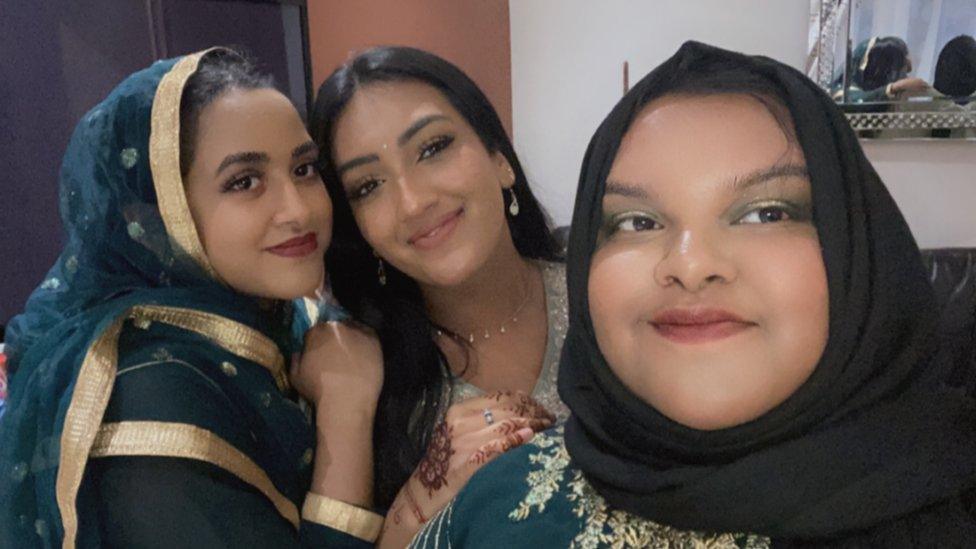
Athika Ahmed (right) celebrated Eid in May
The routine that many young people find mundane and quite boring she found herself needing in order for her to feel like she could focus and push on through the months that she was in lockdown.
Alongside dealing with the uncertainty of what was to come with her grades having been told she wasn't going to sit her exams, the Fitzalan High School pupil was also having to cope with observing Ramadan in lockdown.
"Ramadan is one of the most important months in the Islamic calendar, and I was worried about what it was going to be like during Covid and particularly in lockdown," Athika says.
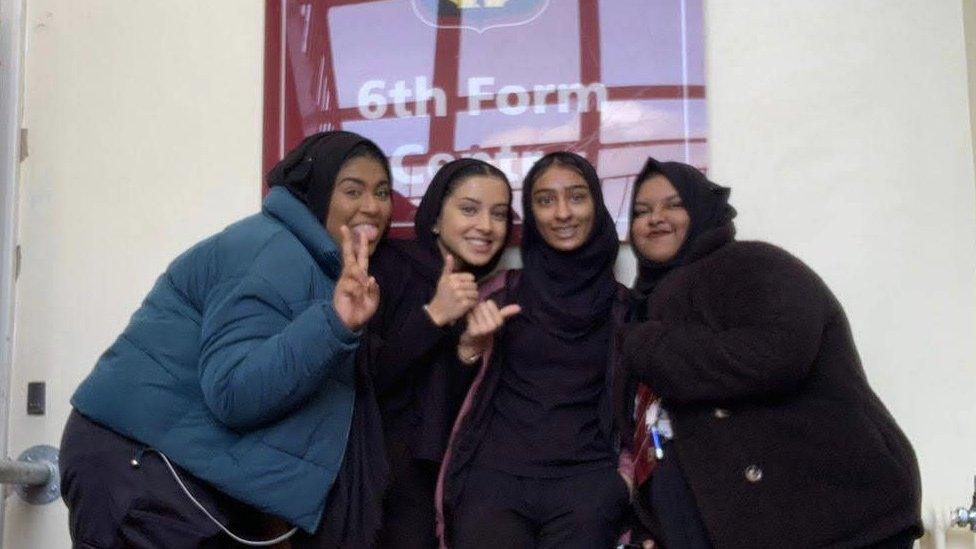
Athika with her friends
For Athika and many other Muslims, it isn't just about not eating and drinking, but abstaining from bad habits, like swearing and being angry. It's a time to reflect.
"What was particularly difficult was going through that struggle of Ramadan, and not being able to celebrate, firstly on an evening, with friends and family as you open your fast together, and then at the end, celebrating Eid, after successfully fasting for the whole month," she says.
This year's celebrations were low key, with immediate family living in the same household, which for Athika, was her mum, dad, and two sisters.
She says: "It was a small party, but we all got dressed up and made some food. It wasn't as exciting as normal with loads of dishes and people, but next year will be better."
With both Eids being celebrated in lockdown, it has been a difficult time for Muslims, but for Athika it hasn't been completely negative.
Having nothing to do, and just her thoughts, the time in lockdown allowed Athika to process feelings about the death of her grandad.
"I never really had the time to grief for my grandad, or maybe it was just that I didn't want to, and chucked myself into my A-levels, studying and revising, but this time in lockdown has really allowed me come to terms with his loss," Athika says.
Thinking about the current situation, the uncertainty of what was happening next with her studies, she realised that her grandad wouldn't want her worrying, but would want her to make the most of her life, and she did just that, volunteering to help others in her community.
The volunteering has also allowed her to not get stressed about her A-level results. With students not sitting exams and marks being based on mock exams and teachers' grades, Athika had been nervous about what is going to happen.
"I tried hard in my mock so I feel happy that I did the best I could, but looking at what happened in Scotland and me not coming from an affluent area it does make me really worried about what is going to happen," she says.
Despite being disappointed with her results, Athika managed to secure her place at university. And the Covid crisis has made her all the more determined to aspire to become a doctor.
She says "Covid has highlighted the importance of the NHS and how much I can do to help people during really difficult times like this."
- Published13 August 2020
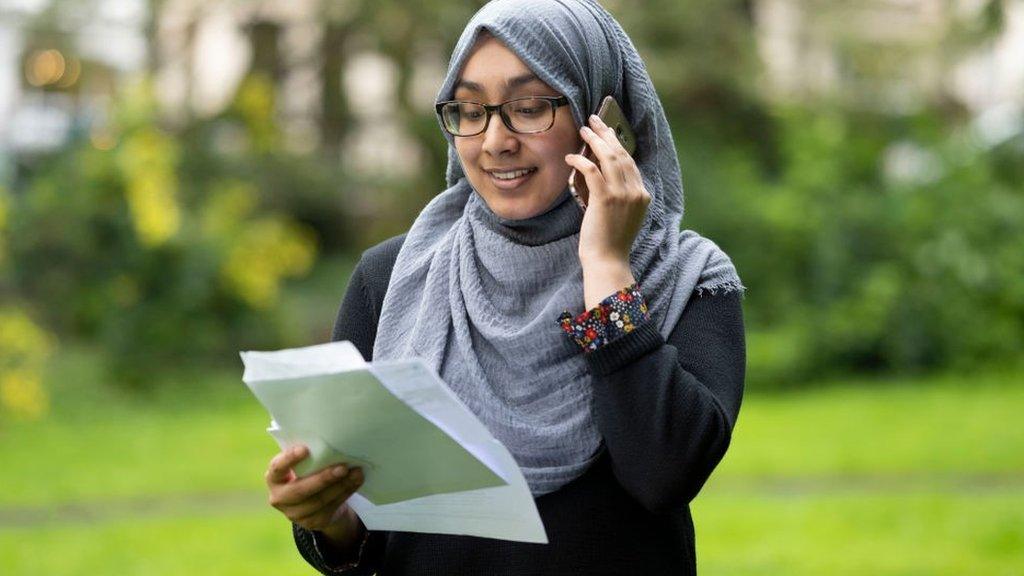
- Published13 August 2020
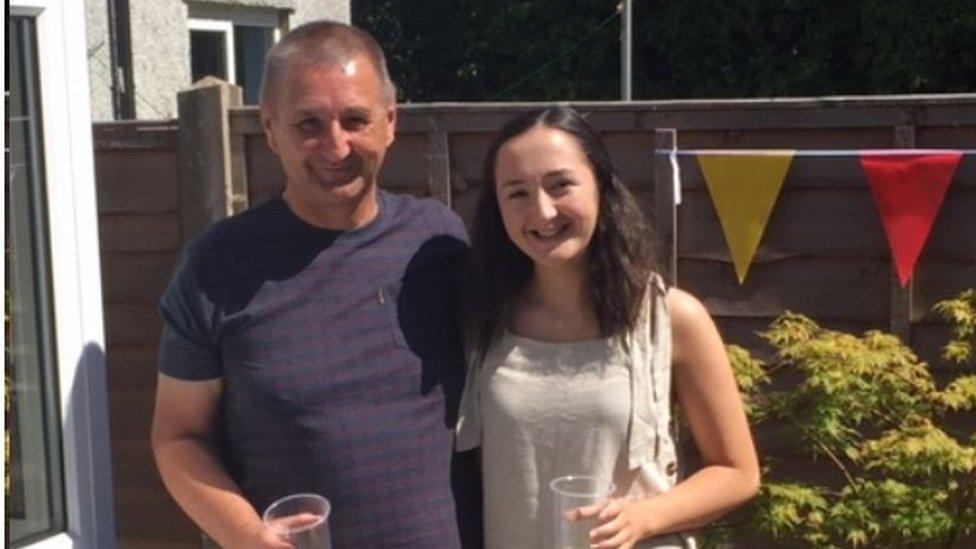
- Published12 August 2020
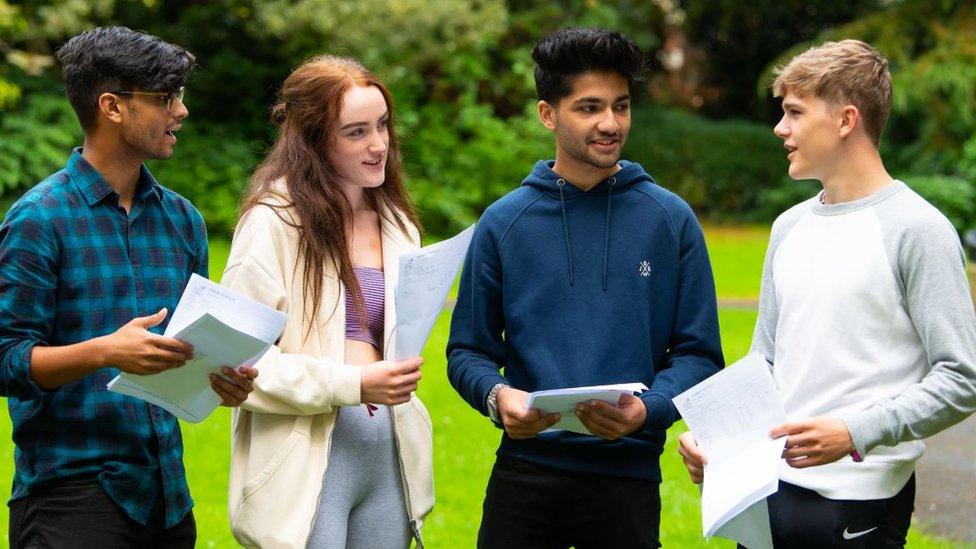
- Published13 August 2020
